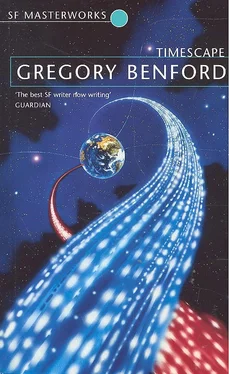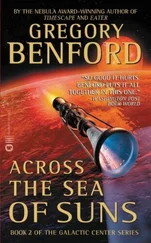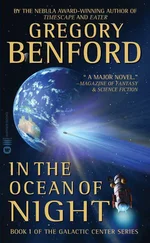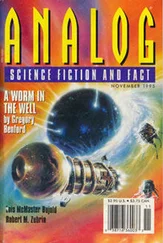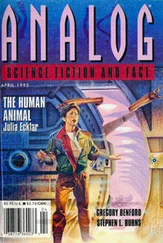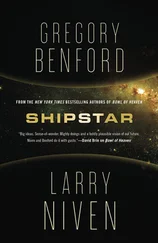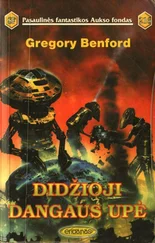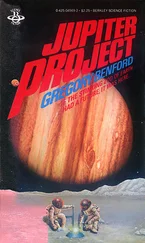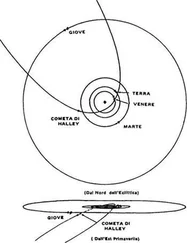“Marjorie, what’s going on in that school? I don’t want her filling Nicky’s head with ideas like that. The woman sounds unbalanced. Speak to the headmistress about her.”
“I doubt that it would do much good,” Marjorie replied equably. “There are far more ‘prophets of doom,’ as you call them, around than anyone else these days.”
“Miss Crenshaw says we should all just pray,” Nicky went on obstinately. “Miss Crenshaw says it’s a judgment . And probably the end of the world.”
“Well, that’s just silly, dear,” Marjorie said. “Where would we be if we all just sat about and prayed? You have to get on with things. Speaking of which, you children had better get a move on or you’ll be late to school.”
“Miss Crenshaw says, ‘Consider the lilies of the field,’” Nicky muttered as she left the room.
“Well, I’m no bloody lily,” Renfrew said, pushing back his chair and rising, “so I’d better go off and toil for another day.”
“Leaving me to spin?” Marjorie smiled. “It’s the only way, isn’t it? Here’s your lunch. No meat again this week, but I got a bit of cheese at the farm and I pulled some early carrots. I think we may have some potatoes this year. You’d like that, wouldn’t you?” She reached up and kissed him. “I do hope the interview goes well.”
“Thanks, luv.” He felt the old familiar tightening begin. He had to get that funding. He’d put vast sums of time and thought into this project. He must have the equipment. It had to be tried.
Renfrew left the house and mounted his bicycle. Already he was sloughing off the family man, his thoughts reaching ahead to the lab, the day’s instructions to the technicians, the coming interview with Peterson.
He pumped along, leaving Grantchester and skirting round Cambridge. It had rained during the night. A slight mist hung low over the ploughed fields, softening the light. Drops clung to the new green leaves on the trees. Moisture glittered on the carpet of bluebells covering the ground in the clearings. The lane here ran alongside a little stream lined by low alder bushes and nettles. On the surface of the stream he could see ripples forming as the bugs called water boatmen jerked themselves along on their oarlike legs. Kingcups were blooming in a sheet of gold along the banks and big soft furry catkins were coming out on the willows. It was a fresh April morning, the kind he had loved as a boy in Yorkshire, watching the mist rise off the moors in the pale morning sun and the hares scurry off at his approach. The lane he was cycling along had sunk deep over the years and his head was nearly level with the tree roots on either side. A smell of damp earth and rain-washed grass came to him, mixed with an acrid tang of coal smoke.
A man and a woman eyed him blankly as he pedaled by. They leaned idly against a sagging wood fence. Renfrew grimaced. Each month more squatters drifted into the area, thinking Cambridge was a rich town. Off to the right was the shambles of an old farmhouse. In the last week the yawning black windows had been blocked in with newspaper, boards, and rags. It was surprising squatters hadn’t smelled out the place before.
The last bit of cycling, nipping through the outskirts of Cambridge, was the worst. The streets were difficult to negotiate, with cars parked every which way, abandoned. There had been a national program to recycle them, but all Renfrew had seen come of it was a lot of talk on television. He threaded among the cars, which sat there like eyeless, legless beetles, stripped of all their removable parts. Students were living in some of them. Drowsy faces turned to watch him wobble by.
In front of the Cavendish he locked his bicycle into the rack. One car in the lot, he noticed. Surely that bugger Peterson wasn’t here this early? It wasn’t yet 8:30. He trotted up the steps and across the entrance hall.
To Renfrew the present complex of three buildings was anonymous. The original Cav, where Rutherford had discovered the nucleus, was an old brick building in the center of Cambridge, a museum. From the Madingley Road two hundred meters away this place could easily be taken for an insurance center or a factory or any business place. When it had opened in the early ‘70s the “new Cav” had been immaculate, with harmonized color schemes, carpets in the library, and well-stocked shelves. Now the corridors were poorly lit and many laboratories yawned empty, stripped of equipment. Renfrew made his way to his own lab in the Mott building.
“Good morning, Dr. Renfrew.”
“Oh, morning, Jason. Has anyone been in?”
“Well, George came in to start the roughing pumps, but—”
“No, no, I mean a visitor. I’m expecting a fellow from London. Peterson’s his name.”
“Oh, no. No one like that. You want me to get started here, then?”
“Yes, go ahead. How’s the apparatus?”
“Fairly good. The vacuum is coming down. We’re at ten microns now. We’ve got a fresh charge of liquid nitrogen and we’ve checked out the electronics. Looks as if one of the amplifiers is going. We’re doing some calibrations and the equipment should be checked out in about an hour.”
“Okay. Look here, Jason, this fellow Peterson is coming down from the World Council. He’s considering increasing funding. We’ll have a run for him, put the apparatus through its paces in a few hours. Try to look lively and spruce the place up a bit, will you?”
“Right. I’ll get her running.”
Renfrew went down the catwalk to the floor of the laboratory and stepped nimbly over the wires and cables. The room was of bare concrete, outfitted with old-fashioned electrical connections and rather newer cables strewn through the aisles of apparatus. Renfrew greeted each of the technicians as he came to them, asked questions about the running of the ion focusers, and gave his instructions. He knew this warren of equipment well now, had painfully gathered the pieces and designed it himself. The liquid nitrogen went tick and burbled in its flask. Powered units hummed in spots where there was a slight voltage mismatch. The oscilloscopes’ green faces danced and rippled with smooth yellow curves. He felt at home.
Renfrew seldom noticed the austere walls and blocky angles of his lab; to him it was a comfortable gathering of familiar elements working together. He could not fathom the now-fashionable abhorrence of things mechanical; he suspected it was one side of a coin, the other being awe. But either was nonsense. One might as well feel the same emotions about a skyscraper, for example, yet the building was no greater than a man—men made it , not the other way round. The universe of artifacts was a human one. As Renfrew moved through the lanes of bulky electronics, he sometimes seemed to himself a fish swimming in the warm waters of his own ocean, carrying the elaborate scheme of the experiment as a multi-layered diagram in his mind, checking it against the never-perfect reality before him. He loved this thinking, correcting, and searching for the unseen flaw that could destroy the whole effect he wanted.
He had assembled most of this apparatus by scavenging among the other research groups in the Cav. Research had always been a highly visible luxury, easily cut. The past five years had been a disaster. When a group had been shut down, Renfrew had salvaged what he could. He had started out in the nuclear resonance group as a specialist in making beams of high-energy ions. This became important in the discovery of a completely new kind of subatomic particle, the tachyon, which had been theorized about for decades. Renfrew had moved over into that field. He had kept his small crew afloat by adroit grantsmanship and by using the fact that tachyons, as the newest of the new, had a clear intellectual claim to whatever funds remained in the National Research Council. The NRC had dissolved last year, though.
Читать дальше
